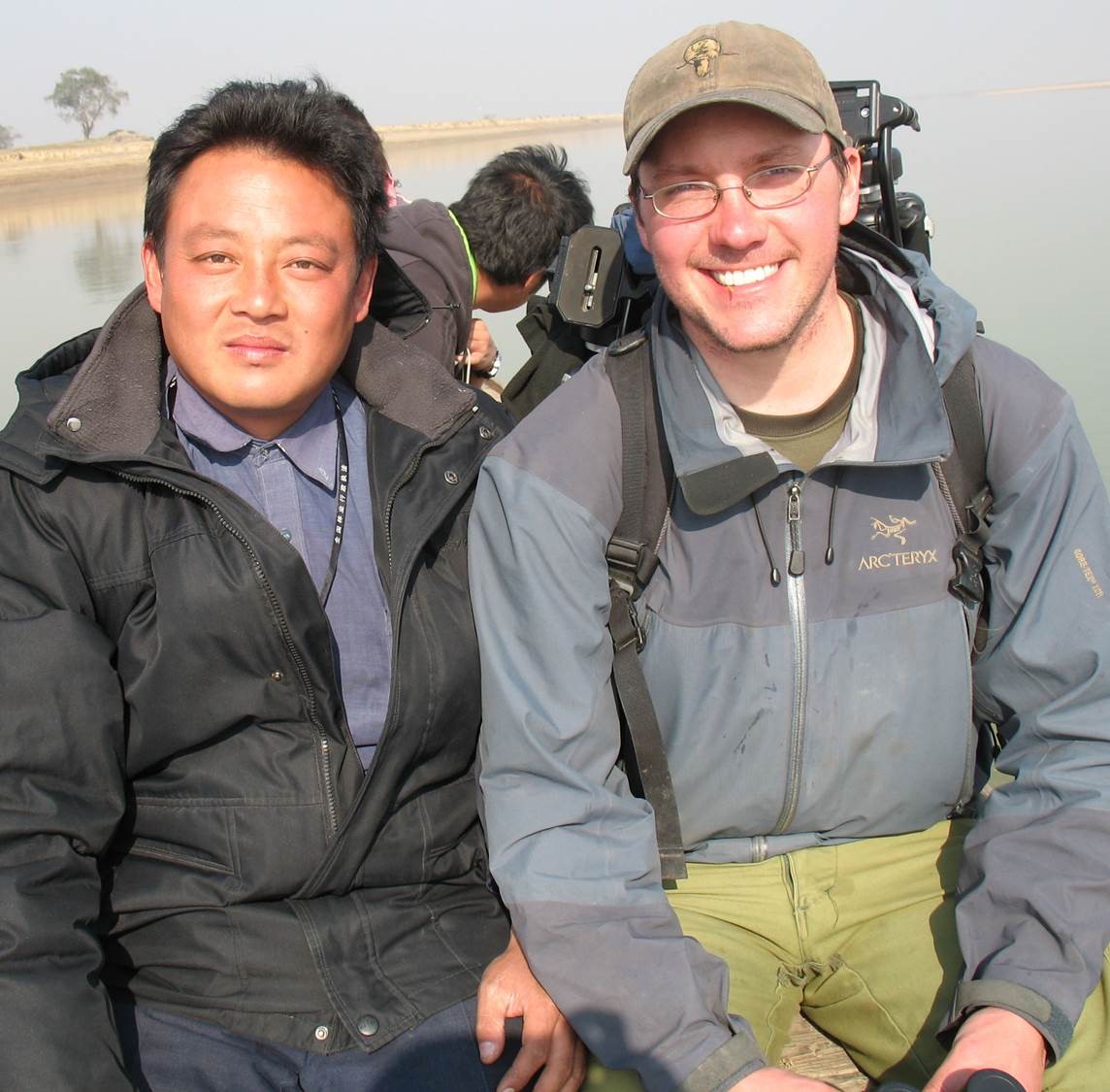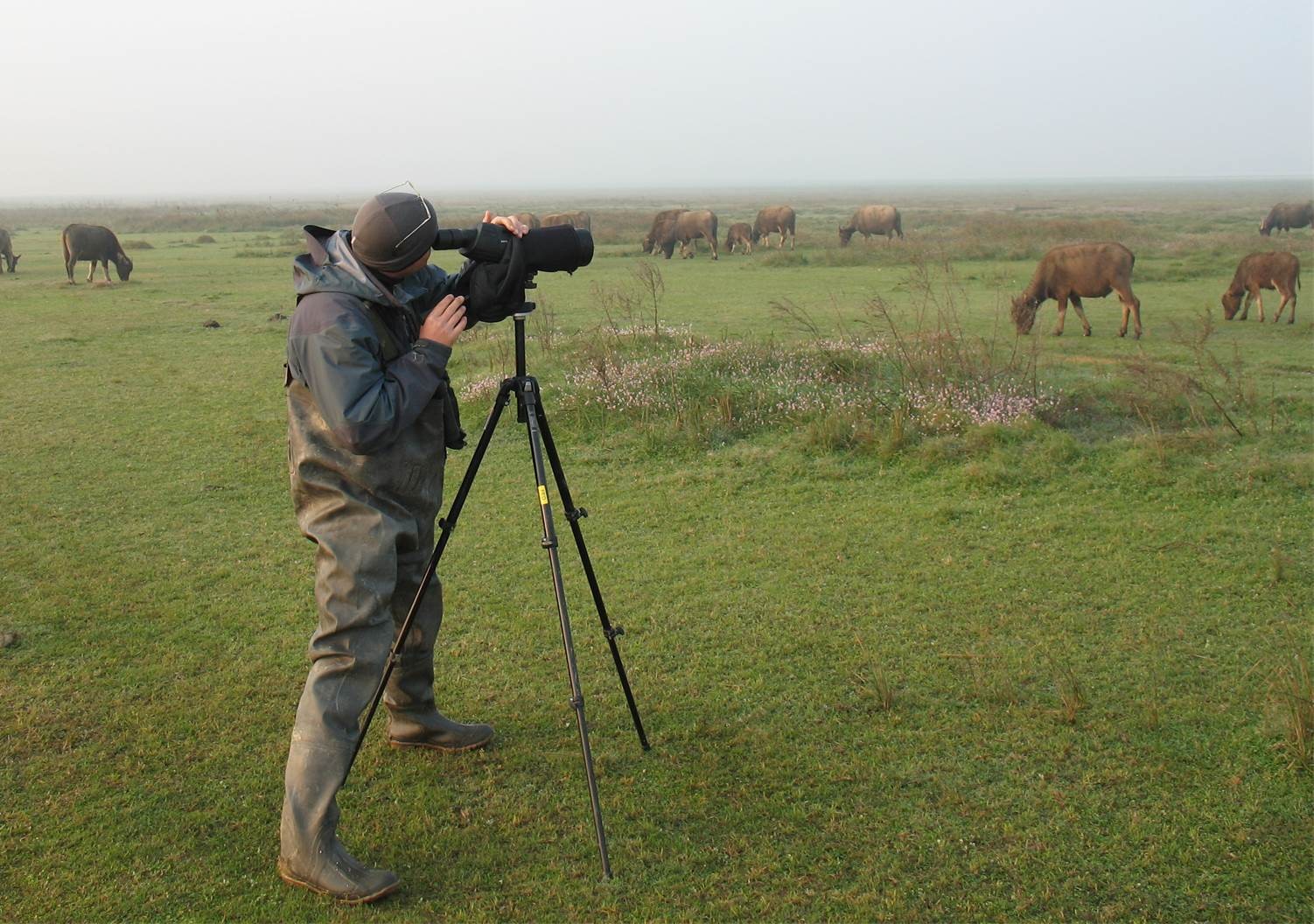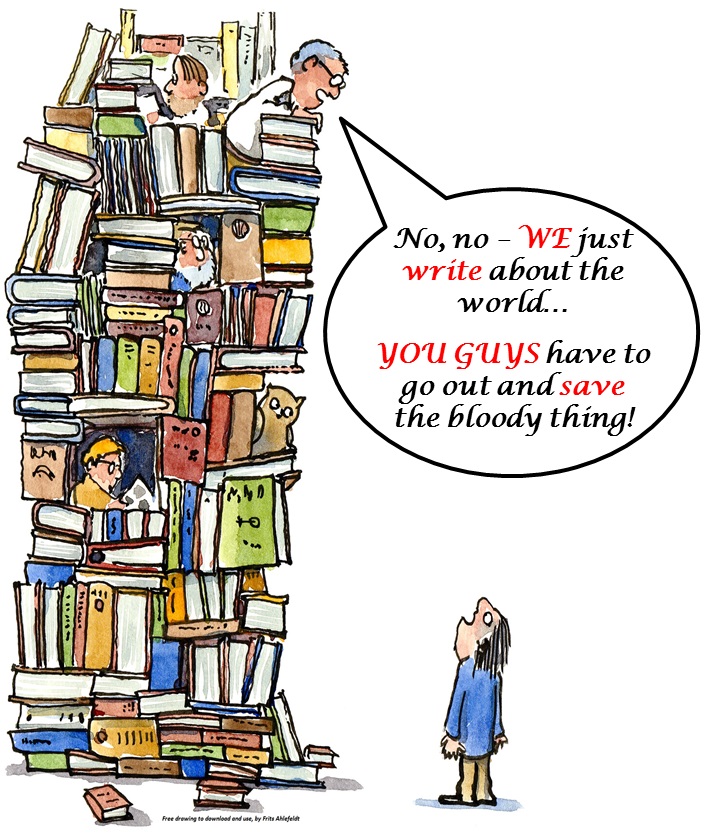Posted 02/2/16
In a society that changes fast and people who want information and action now, doing research can become a highly frustrating task, while conservation a highly praised service. The problem is that while conservation and research need each other, their expectations and time-scales are rarely in sync. Both sides could learn from each other and both sides are necessary. A balance is needed in James Burnham's opinion, and he is trying to strike that balance himself.

James Burnham is a Ph.D. student whose research questions came out of a conservation organization’s needs. James encountered firsthand experience how different and yet how connected the two worlds of academia and conservation are. The need from the conservation side was a “too broad”, open-ended question that needed to be split into several smaller research tasks to be scientifically feasible. However, the task of finding the specific research question that answers the conservation question was a challenge. Clearly conservation and research have different priorities and different time scales at which each operate. Reconciling the differences can be hard and it adds a layer of difficulty to both science and conservation, each of which is already difficult on its own.In a perfect world, conservation builds upon research. The idea is that conservation deals with limited resources of time and money and these have to be optimized. In order to do that, conservation decisions should be based on the best available research.

However, conservation organizations and their supporters want to see results in the short to medium-term, but research takes months or years. Especially when conservation related questions require field work to inform and help shape conclusions and solutions, time is a major drawback and things can take up to several years before researchers can draw a solid conclusion.In addition to the time issue, academia creates peer pressure and the way the “Ivory tower” world is organized. Inferring conclusions from observable patterns is not accepted in science. The scientific method is ingrained in the minds of scientists. By default, scientists are more comfortable with situations that can be replicable and done in controlled environments. However, there is rarely a setting similar to a controlled environment in nature! “If Darwin was trying to publish his research today, he would most likely be rejected by most journals and by his peers”, says James. It may be necessary to change that mindset and be more mindful to the logistic constrains that are inherent in field-based conservation science.

Finally, the way conservationists and researchers deal and see each other adds another layer of complexity. On one hand, conservationists look at researchers as the genie in the bottle that can answer any question. On the other hand, researchers see conservationists as their validation tool, i.e., the means to test the researchers’ hypotheses and results. Both sides need to be more explicit on what they want and need and that, in James’s opinion, does not happen enough. Finding a way to balance the expectations on both sides would lead to more effective conservation, more effective use of time, applied research would go faster and therefore, make a difference faster!

The bottom line is that both sides have things to learn from each other. Conservationists are really good at highlighting that what they do is important and necessary without being caught up in the details of how they will do it. Public opinion on conservation is generally positive and there is a feeling of urgency. Researchers are good at being precise and methodic, and careful about drawing conclusions too fast. However, researchers need to learn to see past the methods. Poking holes in someone else’s methods is easy, and this is what researchers are trained to do. Ultimately though, researchers need to be able to see past it and listen to the message, while conservationists need to be patient and trust research more.Balancing these two worlds has the biggest potential benefit for all of us. And that is what James faces every day, and tries to balance in his own work.“
Story by Radeloff, Volker
